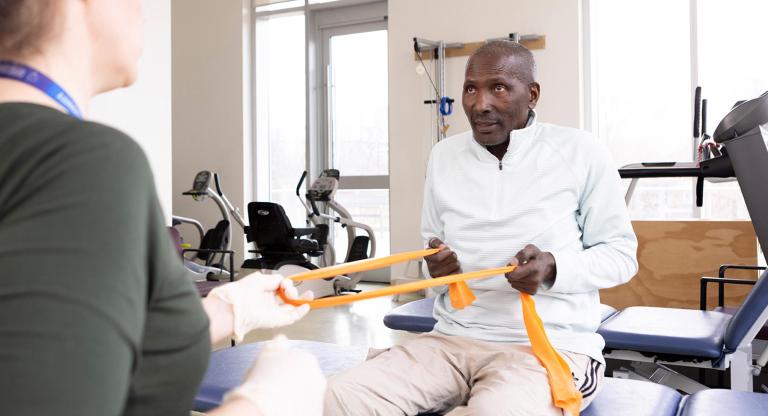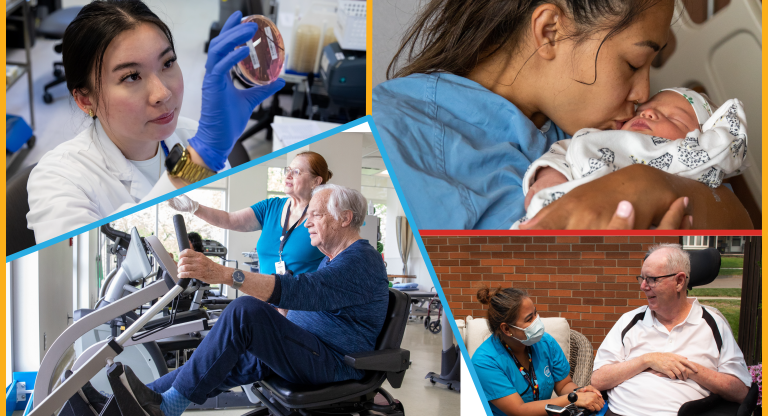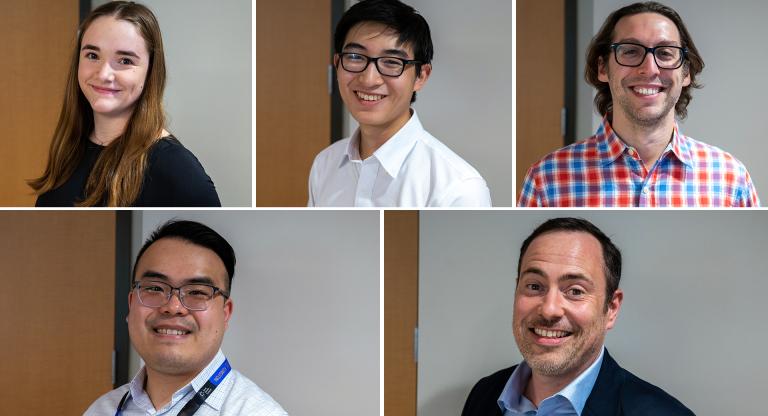Helping to be there for older adults

Older loved ones, friends and neighbours likely feel more vulnerable since the pandemic began and with current restrictions they may now also feel especially frail and alone.
“We are seeing a toll on physical and mental health and we have a critical opportunity to not wait until things get back to normal to do more or reach out, but to be attuned to our collective need for connection,” says Dr. Lesley Wiesenfeld, Psychiatrist-in-Chief and member of the Geriatric Psychiatry Consultation Liaison Service team at Sinai Health.
“We all need to be seen, to share. We need to do it creatively, kindly and safely for continued good mental health and well-being. Even reaching out to say, ‘I wish I could see you more, or I miss you,’ is valuable,” says Lesley.
To help reduce feelings of isolation, she suggests:
- Reach out to older loved ones and friends more often. Have meaningful conversations. Ask them about what they would like to talk about. Let them tell you how they are feeling.
- Maintain physical distancing while building on spiritual and emotional closeness. Share with them what you miss about being with them. Ask about moments in their history. Reminisce. Plan for next vacations or get-togethers.
- Find new and creative ways to safely increase connectedness. Independently read the same book or magazine article, then plan to discuss it.
- Recognize the strains on mental health. Remind individuals by helping to destigmatize the idea of asking for help. It is normal to feel loss, fear and disappointment at this time. People might need more help if those feelings are crowding out all other pleasures, or keeping them from being able to look after themselves. Support their confidence to reach out.
For older adults who need mental health supports, the usual avenues of in-home care and in-person care are available but are operating at levels to ensure services and programs can be provided safely to patients during the pandemic. At Sinai Health, the Geriatric Psychiatry ambulatory program continues to provide outpatient services to offer assessment and treatment. The program works in collaboration with the community including with Circle of Care, and the Reitman Centre CARERS program which provides assessments, and access to group and individual support for those caring for family members with dementia.












